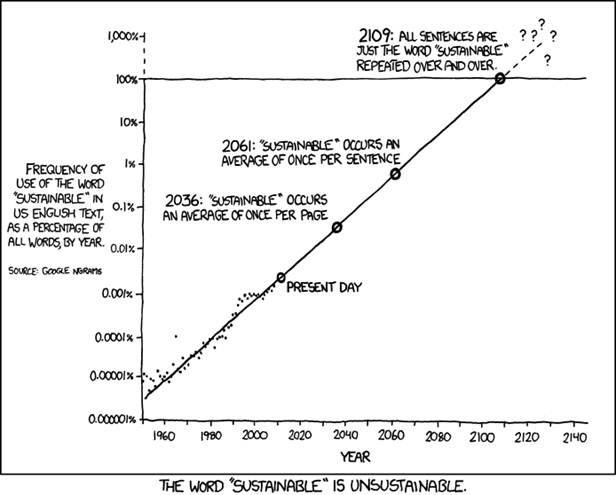“But will this be sustainable?”
This is a question I find it harder and harder to tolerate it in discussions about international development. (Luckily, due to my nature and to this blog, I rarely have to bite my tongue.)
I share this though because we as aid workers and funders need to challenge this notion of the necessity of the “sustainability” of activities within aid projects. Basic services to people must be sustainable. Training workshops must not.
I do not expect the fire house or the library down the street from me in Washington D.C. to be sustainable. In fact, I expect these public goods to be funded in perpetuity.
But by whom? That is the important question. I vote to make sure these services stay in tact in my own community.
Therefore, donors must be more careful not to employ a double standard in their expectations, especially of local civil society organizations. Let’s talk about sustainability, yes, but let’s also make sure it’s not just an empty question.
For a great read on what genuine sustainability of water and sanitation services in the developing world should mean, I recommend @NedBreslin of Water for People’s paper “Rethinking Hydro-Philanthropy: Smart Money for Transformative Impact.”
And while I’m at it, what about “innovation” in aid?
***
Related Posts


I grapple with some of the same thoughts in my post about giving grants instead of loans. My organization is only “sustainable” because we continue to have donors funding us. Why would we require something different for our community organizations? Being perpetually donor funded (or tax-payer funded) can be a mode of sustainability.
http://www.whydev.org/micro-grants-not-micro-loans/
Sustainability is a strange idea in a world in constant flux. It makes sense to me if we see it in terms of communities sustaining the gains they have made, sustaining their efforts to pull themselves out of poverty. Sustain-ability then relies on the quality of local organisation and leadership, the capacities to read the situation and respond well, confidence to take initiative etc. These are what enable sustainability. When people are collectively resourceful and response-able they can more readily mobilize the resources they need for financial sustainability, often from the most surprising sources, unimaginable by the bean counters. Just read up about the Mahila Milan in India for an example of how millions of women do sustainability.
Since when does sustainabilty mean no money? That’s the impression I got from the post and if that’s so, I disagree with it. Is that what others think?
Sustainability in my thinking is that whatever it is can continue, it can be sustained, whether that be with a steady contribution from people in terms of finance or renewable natural resource (including humans), it doesn’t matter.
100% agreed. Sometimes aid is meant to catalyse action or fill a gap. When the gap is filled or the action has happened, it should be able to be over. The problem with funders who are overly concerned with sustainability is that someone needs to measure it, which keeps implementing organisations around far longer than they need to be around to implement. So tired of sustainable (sustained?) organisations instead of sustainable impact.
Pingback: bringing in the state for experiments and development efforts — when? how? | hlanthorn
Are we not mixing up ‘self-sustaining’ and sustainable? Of course a library needs to be sustainable but not necessarily self-sustaining. Two related questions are needed in the ‘sustainability’ discussion:
* what is being sustained – a personal or public good?
* who ensures sustainability – individuals or ‘the public’?
Libraries vs Mahila Milan are a good example. Women sustain a process for themselves that initially intends to benefit themselves – and generate secondary enormous benefits for society at large. Libraries are a public good and need public support to be sustainable.
Pingback: Sustainability and Innovation: Aid workers, some linguistic clarity please! | Practical Initiatives Network - the PIN blog
Pingback: Five Reasons Why Centering Grassroots Leadership Matters – Humanitarian Web